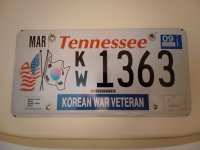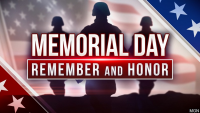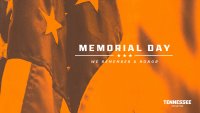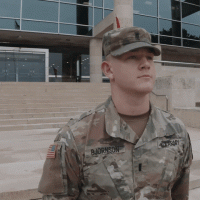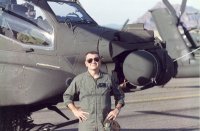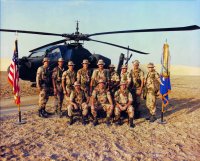OneManGang
Senior Member
- Joined
- Sep 7, 2004
- Messages
- 2,048
- Likes
- 9,783
(Author’s note: This is an essay from Sgt. Jim Lucas dealing with his time on Tarawa’s Betio Island during that particular Hell on Earth. Sgt. Lucas would go on to be a Pulitzer Prize winning columnist with the Scripps-Howard group after the war. Lucas was a combat correspondent but he was first and foremost a Marine. He carried a rifle as well as a typewriter and it was expected that when the going got tough, he’d take his place in the line. The thing about Betio was that there was nowhere truly safe. It is the evening of D-Day, November 20, 1943…)
“Together We Prayed over Our Friend”
An hour later the command boat was back. “Do you have assault troops?” we were asked.
“We carry military police and correspondents.”
I felt the sickening guilt which sometimes comes to specialists among fighting men.
I was to take the watch at midnight and I had not yet been awakened by the man who had the 8 to 12, so I know it was sometime before midnight when Matty shook me.
“We’re going in,” he said.
Four boats were following the command vessel, which was edging toward the pier. For a moment I feared we might land among the Japs. The danger was not as real as it appeared then, for Colonel Shoup since has assured me that our men held a beachead of considerable length that first night.
We drew fire – I swear it came from the hulk of a small Japanese merchantman that had been blasted by our bombing of September 4 and was beached just beside the pier. Fortunately the fire, wherever it came from, passed over our heads.
Shortly before midnight – fifteen hours after we had left our transport – our landing craft drew alongside the partially wrecked pier.
We were not fooling ourselves. After our first abortive attempt to get in, Matty and I knew our chances were none too good, no better than fifty-fifty. Matty took out his fountain pen and wrote: Mrs. E. A. Matthews, Jr., 501 Sixth Street, Dallas Texas.
“Let her know how it happened,” he said.
I nodded and gave him Ashleigh’s address in Wellington. I had written letters to my own family and left them behind to be mailed if “anything,” as I had said, “happens to me.”
I had later to write to Virginia Matthews and tell her how Matty died.
It was one of the hardest jobs I ever tackled.
Matty was the first man out of the boat. He helped me onto the pier. As I stepped onto the pier I saw a marine directly underfoot. I thought he was a wounded man and cautioned (Ray) Matjasic to be careful.
“He’s dead,” Matty said.
He was a kid of not more than eighteen. The white stripe on his dungaree trousers meant he was a member of the shore party and had come to Betio to help in the unloading. He had died, in all probability, without firing a shot …
We had moved down the dock less than ten feet when the Japanese opened up with a hateful 40mm barrage. The first shell hit the water and exploded not ten feet away, and we fell flat – not a difficult thing to do under fire.
The pier was crowded, for several hundred men lay crouched there waiting for the next shell to hit. My gas mask, strapped to my side, prevented my getting as low as I thought the circumstances demanded, and I detached it. A great deal of my weight is in my hips, and one of the most frequent questions I was asked, when I returned to the States recently, was how I had kept from suffering an embarrassing wound. I could only reply that I was conscious of my exposure, and took pains to safeguard it.
Matty was on the outside, with Matjasic next to him. I was next to Matjasic. The three of us did not cover four feet of the pier.
The second shell hit directly beneath the pier. I was stunned, and drenched by salt water. I heard Ray scream. Matty moaned.
Ray and I jumped to our feet and ran to the opposite side, expecting the next to be a direct hit.
Matty did not move. I called to him, loudly, but he did not answer. I ran back and begged him to get up/ Marines shouted at me to get down, and I was sorely tempted. I do not know when I have been as badly frightened. I tried to drag Matty, but he collapsed in a heap. The third shell, at this moment, hit farther out in the water, and I yelled for Matjasic.
Stunned by the blast, he had been lifted three feet in the air and thrown back on the wooden pier. He had disappeared.
Ray suddenly materialized out of nowhere.
“Who is it?” he asked.
“Matty,” I replied.
Ray began to cry, and disappeared again.
I begged a marine to help me. I got Matty to the other side, and lay down beside him. The shelling lifted, and I began a frantic search for help. Finding a hospital corpsman, I asked him to come with me.
“Man,” he said helplessly, “I’ve got 500 men hurt since 9 o’clock this morning. All I can tell you to do is put him on a stretcher, try to get him on a boat, if you can find a boat going back, and send him out to one of the ships.”
Meanwhile, I had found Ray again.
“How’s Matty?” he asked.
“I’m afraid he’s dead.”
We waylaid a second corpsman – a tow-headed kid who ought to have been back home teasing the girls in the junior play – and brought him to our lieutenant.
He felt of Matty’s pulse and stood up.
“He’s gone,” he said.
Ray is a Catholic and I am a Protestant. Ray had attended confession aboard ship, and I had prayed with men of my own faith.
Together we fell on our knees. Together we prayed over our friend.
I stood up. A watching marine asked, “Your buddy?”
I could only nod.
“They got my kid brother this morning,” he said.
I have never felt so much alone as at that moment. It was difficult to leave Matty, but we had no choice.
Ray and I covered Matty’s body and began our slow trek. Many of Matty’s friends, coming ashore later, saw him there.
Slowly we moved down the pier. We would drop when a man was hit, freeze until the firing ceased, and then move forward. It is impossible to describe one’s feelings. I have tried many times to analyze how I felt. It is as much a mystery to me today as it will probably be to most readers of this book. Few of us had ever gone through such an experience, and I had, throughout, the suspicion that it wasn’t really happening. And there was but one choice – keep moving.
It was morning before we reached the beach. I asked for the command post. Someone pointed indefinitely – so indefinitely that we paid no attention to the gesture.
On the beach fighting still was heavy. In the still-smouldering ruins of a beach warehouse, we spotted a gutted Jap steam roller and edged toward it, trying to put its bulk between us and the Japanese lines. It looked as good a place as any to spend the night, and we dug in the hot sand, still alive with red coals. There the two of us spent the night …
Source: Smith, S. E. (editor), The United States Marine Corps in World War II. Random House: 1969
"Utmost Savagery" Marines in combat on Betio Island, Tarawa Atoll, November, 1943. (US Marine Corps)

“Together We Prayed over Our Friend”
An hour later the command boat was back. “Do you have assault troops?” we were asked.
“We carry military police and correspondents.”
I felt the sickening guilt which sometimes comes to specialists among fighting men.
I was to take the watch at midnight and I had not yet been awakened by the man who had the 8 to 12, so I know it was sometime before midnight when Matty shook me.
“We’re going in,” he said.
Four boats were following the command vessel, which was edging toward the pier. For a moment I feared we might land among the Japs. The danger was not as real as it appeared then, for Colonel Shoup since has assured me that our men held a beachead of considerable length that first night.
We drew fire – I swear it came from the hulk of a small Japanese merchantman that had been blasted by our bombing of September 4 and was beached just beside the pier. Fortunately the fire, wherever it came from, passed over our heads.
Shortly before midnight – fifteen hours after we had left our transport – our landing craft drew alongside the partially wrecked pier.
We were not fooling ourselves. After our first abortive attempt to get in, Matty and I knew our chances were none too good, no better than fifty-fifty. Matty took out his fountain pen and wrote: Mrs. E. A. Matthews, Jr., 501 Sixth Street, Dallas Texas.
“Let her know how it happened,” he said.
I nodded and gave him Ashleigh’s address in Wellington. I had written letters to my own family and left them behind to be mailed if “anything,” as I had said, “happens to me.”
I had later to write to Virginia Matthews and tell her how Matty died.
It was one of the hardest jobs I ever tackled.
Matty was the first man out of the boat. He helped me onto the pier. As I stepped onto the pier I saw a marine directly underfoot. I thought he was a wounded man and cautioned (Ray) Matjasic to be careful.
“He’s dead,” Matty said.
He was a kid of not more than eighteen. The white stripe on his dungaree trousers meant he was a member of the shore party and had come to Betio to help in the unloading. He had died, in all probability, without firing a shot …
We had moved down the dock less than ten feet when the Japanese opened up with a hateful 40mm barrage. The first shell hit the water and exploded not ten feet away, and we fell flat – not a difficult thing to do under fire.
The pier was crowded, for several hundred men lay crouched there waiting for the next shell to hit. My gas mask, strapped to my side, prevented my getting as low as I thought the circumstances demanded, and I detached it. A great deal of my weight is in my hips, and one of the most frequent questions I was asked, when I returned to the States recently, was how I had kept from suffering an embarrassing wound. I could only reply that I was conscious of my exposure, and took pains to safeguard it.
Matty was on the outside, with Matjasic next to him. I was next to Matjasic. The three of us did not cover four feet of the pier.
The second shell hit directly beneath the pier. I was stunned, and drenched by salt water. I heard Ray scream. Matty moaned.
Ray and I jumped to our feet and ran to the opposite side, expecting the next to be a direct hit.
Matty did not move. I called to him, loudly, but he did not answer. I ran back and begged him to get up/ Marines shouted at me to get down, and I was sorely tempted. I do not know when I have been as badly frightened. I tried to drag Matty, but he collapsed in a heap. The third shell, at this moment, hit farther out in the water, and I yelled for Matjasic.
Stunned by the blast, he had been lifted three feet in the air and thrown back on the wooden pier. He had disappeared.
Ray suddenly materialized out of nowhere.
“Who is it?” he asked.
“Matty,” I replied.
Ray began to cry, and disappeared again.
I begged a marine to help me. I got Matty to the other side, and lay down beside him. The shelling lifted, and I began a frantic search for help. Finding a hospital corpsman, I asked him to come with me.
“Man,” he said helplessly, “I’ve got 500 men hurt since 9 o’clock this morning. All I can tell you to do is put him on a stretcher, try to get him on a boat, if you can find a boat going back, and send him out to one of the ships.”
Meanwhile, I had found Ray again.
“How’s Matty?” he asked.
“I’m afraid he’s dead.”
We waylaid a second corpsman – a tow-headed kid who ought to have been back home teasing the girls in the junior play – and brought him to our lieutenant.
He felt of Matty’s pulse and stood up.
“He’s gone,” he said.
Ray is a Catholic and I am a Protestant. Ray had attended confession aboard ship, and I had prayed with men of my own faith.
Together we fell on our knees. Together we prayed over our friend.
I stood up. A watching marine asked, “Your buddy?”
I could only nod.
“They got my kid brother this morning,” he said.
I have never felt so much alone as at that moment. It was difficult to leave Matty, but we had no choice.
Ray and I covered Matty’s body and began our slow trek. Many of Matty’s friends, coming ashore later, saw him there.
Slowly we moved down the pier. We would drop when a man was hit, freeze until the firing ceased, and then move forward. It is impossible to describe one’s feelings. I have tried many times to analyze how I felt. It is as much a mystery to me today as it will probably be to most readers of this book. Few of us had ever gone through such an experience, and I had, throughout, the suspicion that it wasn’t really happening. And there was but one choice – keep moving.
It was morning before we reached the beach. I asked for the command post. Someone pointed indefinitely – so indefinitely that we paid no attention to the gesture.
On the beach fighting still was heavy. In the still-smouldering ruins of a beach warehouse, we spotted a gutted Jap steam roller and edged toward it, trying to put its bulk between us and the Japanese lines. It looked as good a place as any to spend the night, and we dug in the hot sand, still alive with red coals. There the two of us spent the night …
Source: Smith, S. E. (editor), The United States Marine Corps in World War II. Random House: 1969
"Utmost Savagery" Marines in combat on Betio Island, Tarawa Atoll, November, 1943. (US Marine Corps)



